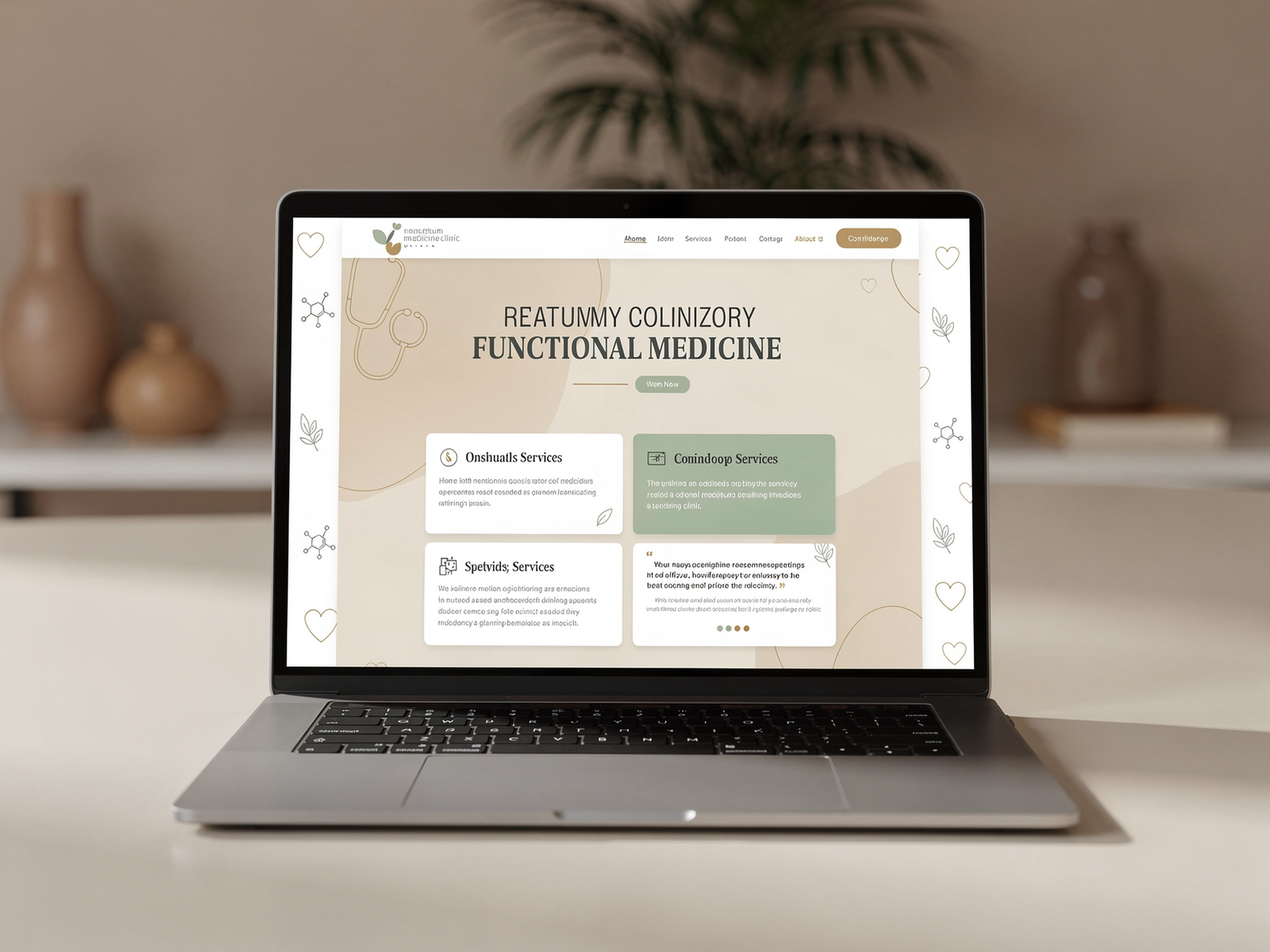5 Ways Topical Authority Helps Realtors Outrank Zillow
Watch the video for an easy strategy to build your local topical authority as a realtor
Want More Clients Fast?
Steal This Website Rescue Kit to Get More Clients, More Calls, and More Sales on Autopilot
Why Topical Authority Matters for Realtors in SEO is the fastest path to ranking higher, earning trust, and turning website visitors into real leads in your market.
Why Topical Authority Matters for Realtors in SEO: the simple definition
Topical authority is your website’s ability to demonstrate deep, organized expertise on a subject that buyers and sellers care about. When you cover a topic thoroughly, connect related articles with smart internal links, and provide experience-backed insights, search engines recognize you as a trusted source. The result is better rankings for many keywords in the topic, not just one.
Think of it like your favorite listing presentation. One nice comp is fine, but twelve perfectly chosen comps, market graphs, and neighborhood insights make you look like the only pro in the room. That is topical authority for SEO.
Why realtors who master topical authority win local search
Most agents publish scattered posts about whatever seems interesting that week. Topical authority flips that approach. You plan content in clusters that map to what clients actually search, then you become the go-to answer across the cluster.
What that looks like in practice:
You do not publish one blog on “home value.” You publish a cluster that explores home value factors, CMA vs AVM, how improvements change value, city-specific appreciation trends, and a step-by-step valuation guide.
You do not write one neighborhood guide. You publish a complete series covering schools, amenities, commute times, price bands, HOA rules, and recent sales.
As your cluster grows, Google can trust your site for more phrases across that topic. Rankings rise across many pages at once.
The topical authority flywheel for real estate sites
Choose a core topic your clients care about, such as “Move to [City],” “Selling a Luxury Home in [City],” or “First-Time Buyer Programs in [State].”
Map a cluster of 10 to 25 pages that cover the topic from every angle.
Publish consistently with internal links between every related page.
Add real expertise with your local data, stories, and original media.
Earn engagement with helpful tools, lead magnets, and clear CTAs.
Grow authority as Google sees depth, users stay longer, and more pages rank.
Repeat on the next topic.
Data you can act on
Below is an illustrative twelve week model that reflects what we typically see when agents move from random posting to a focused topical plan. The point is the shape, not the exact numbers. Consistency across a tight cluster almost always compounds faster than isolated posts.
Use this as a planning cue. If you execute one tight cluster over 8 to 12 weeks, you often see meaningful lifts in impressions, click through rates, and conversions across the entire set of pages.
Real estate topics that build authority quickly
Pick one cluster at a time and finish it before moving on.
Moving to [City]
Cost of living, pros and cons, best neighborhoods by lifestyle, commute times, crime and safety, schools with ratings, new construction options, renting vs buying.Selling in [City]
Timing the market, staging by price tier, photography checklist, pricing psychology, negotiation scripts, pre-list inspection, how to choose the right listing agent.Luxury in [Area]
Gated communities, golf communities, waterfront rules, dock permits, short term rental regulations, jumbo loan basics, luxury pricing strategy.First-time buyers
Step-by-step timeline, down payment programs, FHA vs conventional, credit improvement, hidden costs, inspection guide, appraisal gaps.Neighborhood deep dives
Feature pages for each neighborhood, then supporting posts for schools, amenities, HOA rules, typical floor plans, and sales trends.
Building a cluster map in 15 minutes
Open a doc and create three columns: Search Intent, Working Title, Next Action.
Collect intents
Brainstorm what your audience needs to know before they contact you. Think “buy,” “sell,” “move,” “finance,” “neighborhood,” and “lifestyle.”Draft working titles
Write simple titles that match search intent. Example: “Cost of Living in [City] in 2025,” “Best Neighborhoods in [City] for Families,” “How to Price Your Home in [City].”Assign next actions
Outline, draft, or interview. If a post needs your personal experience, note what you will capture, like a photo walk of the park or a quick video on commute routes.
Aim for 10 to 25 pieces per cluster. That size is large enough to show depth, small enough to ship in 60 to 90 days.
For a practical framework on the whole process, you might enjoy Real Estate SEO Best Practices and How to Build a Realtor Website That Ranks Locally in Under 90 Days.
On-page structure that signals authority
Make every article easy to scan and impossible to bounce from.
Clear H2 and H3 subheads that mirror questions your clients ask
Short paragraphs with plenty of white space
A simple contents box at the top for long guides
Images of the actual neighborhoods and homes you sell
Internal links to related posts in the cluster
A call to action that matches the page intent
If you want a conversion refresh while you build topical depth, skim Real Estate Website Conversion Tips for fast wins.
Internal linking that pulls the whole cluster up
Internal links tell search engines which pages are related and which one is the pillar. Use a hub-and-spoke pattern.
Choose one pillar page per cluster that gives a comprehensive overview.
Link every supporting post to the pillar with consistent anchor text.
Link between siblings when it helps users discover the next step.
Add a “Next up” section at the end of every post to increase dwell time.
When you are ready to plan your navigation, Best Website Layout for Realtors can help you place hubs where users expect them.
Add real experience so your content wins trust
Search engines reward experience backed by evidence. Your advantage as a realtor is that you have local proof others cannot fake.
Add at least one of these to every post:
Photos you took yourself
Micro case studies, like “How we priced 123 Oak Street to get 4 offers in 48 hours”
Screenshots of MLS charts you can share
Quotes from local inspectors, lenders, or contractors
A 60 second video where you explain the one thing that matters most
A map with your notes, such as commute tips that locals only learn the hard way
If local visibility on Maps is a priority, pair your cluster with How to Rank Higher on Google Maps and keep NAP consistency tight.

AI optimization that keeps your voice
AI can speed up the heavy lifting without losing your human touch.
Entity lists
Before writing, generate a list of entities and synonyms the topic should include, like neighborhood names, school districts, financing terms, and local landmarks.Outline first drafts
Use AI to create a structured outline. Then add your stories and local data before drafting the post.FAQ expansion
Pull common questions from your calls and inbox. Ask AI to propose concise answers you can refine. These make great schema as well.Schema and metadata
Add FAQ schema, Article schema, and appropriate LocalBusiness markup. Keep titles under 60 characters and meta descriptions under 155 when possible.Media planning
Generate a shot list for photos and B-roll before you head out. You will publish faster when the assets are ready.
If you plan to layer paid traffic on top of your SEO, read Facebook Ads vs Google Ads for Realtors to decide which lever to pull for your market and budget.
Technical SEO that supports authority
Topic depth works best when your site is fast, crawlable, and easy to index.
Site speed
Compress images, lazy load media, and use a performance-friendly theme. Target sub 2.0 seconds for Largest Contentful Paint on mobile.Clean URL structure
Keep slugs short, readable, and grouped by topic. Example: /moving-to-city/best-neighborhoods/.Crawl budget
Avoid thin tag pages. Index only pages that add value. Noindex archives that do not help users.Schema coverage
Use Article, FAQ, LocalBusiness, Product for services if applicable, and Breadcrumb.Sitemaps and internal redirects
Submit updated sitemaps and fix redirect chains so crawlers reach your pages quickly.
If IDX is part of your strategy, you will like What Is IDX and Why It’s Crucial for Modern Agents for setup and SEO guardrails.
How to measure topical authority over 12 weeks
Use a simple scorecard. Track weekly so you can see compounding gains.
Number of posts shipped in the cluster
Number of internal links added per post
Average position for 10 to 20 target keywords
Organic clicks to the pillar and top five spokes
Average time on page for the cluster
Lead conversions tied to the cluster
Set realistic targets. For a new cluster, aim for 10 posts in the first 30 days and 10 more in the next 30 days. Expect early impressions, then a lift in clicks and rankings after 6 to 10 weeks as interlinking and user signals accumulate.
For tools that make tracking and publishing easier, visit Best Free Tools for Realtors. For organizing your follow up with new leads, check Top 5 Best CRMs for Realtors.
Real-world scenarios to copy
You want listings
Build a “Selling in [City]” cluster and lead with pricing, staging, and negotiation content. Use a home value tool and a seller guide download to convert traffic.You want relocation buyers
Build a “Moving to [City]” cluster. Publish neighborhood comparisons, cost of living, commute breakdowns, school zones, and new construction guides. Add a relocation checklist lead magnet.You want luxury
Build a “Luxury in [Area]” cluster around waterfront rights, HOA rules, and high-end neighborhoods. Add gated community guides and a private consultation CTA.
If you are still planning your overall content calendar, brainstorm with Real Estate Blog Post Ideas to fill in the gaps.
A simple publishing cadence that works
Week 1 to 2
Create the pillar outline, pick 10 support posts, and draft 5 of them.
Week 3 to 4
Publish the pillar plus the first 5 posts. Add internal links. Shoot photos and short videos for those pages.
Week 5 to 8
Publish 5 to 10 more posts. Update the pillar with new internal links. Add FAQ schema and a “Next up” section to every page.
Week 9 to 12
Refresh older posts with new media and FAQs. Build a short lead magnet that matches the cluster, like a neighborhood buyer guide or a seller pricing checklist.
If local search is central to your plan, do not skip Local SEO for Real Estate Agents. It fits neatly with topical clusters and helps your NAP and review strategy support your rankings.
Final checklist before you hit publish
One clear pillar page that links to every supporting post
Every supporting post links to the pillar and two or three siblings
Title and H1 match the search intent
Meta description is compelling and under typical length limits
At least one unique photo or video per post
FAQ section that answers real questions from your clients
Clear CTA that matches the intent of the page
Your next step
Why Topical Authority Matters for Realtors in SEO is not theory. It is a practical system that any agent can ship in 60 to 90 days with discipline and a clear cluster plan.
Only at the end do we say this. If you want a partner that plans your clusters, builds the pages, designs conversion-focused layouts, and connects the whole system with IDX, Maps, and lead capture, Digital Dream Homes is ready to help. Book a free consultation and let’s build topical depth that ranks, converts, and compounds. Why Topical Authority Matters for Realtors in SEO is exactly why your next 90 days should start with a focused content cluster and a quick call with our team.
Matt Pieczarka
Want a Free Website Audit?
Fill out your information below and we will send you a personal screen share video of tips on how to make your actual website better!
See How Many Closings You're Losing to Zillow!
Click Here to Use our Calculator to See How Many Clients Zillow is Taking From You Per Year!
Some More Posts About Strategy and Growth…
- Marketing Plan For Small Business 2026 Every Owner Should Copy
- Benefits of Professional Website for Small Business: The Hidden Profits
- How to Get More Referrals for Small Local Business Fast
- Customer Retention Strategies Small Business Owners Never Hear About
- How Small Businesses Compete Online And Actually Win In 2026
- Blogging for Small Business Growth: 2026 Profit Multiplier
- Sales Funnel For Small Business Website That Prints Money
- What Is A Listicle And Why Your Website Desperately Needs One
- Strategic Website Design That Turns Small Business Clicks Into Clients
- The Simple Blueprint to Explosive Small Business Growth
9 Functional Medicine Local SEO Wins That Fill Your Calendar
9 Functional Medicine Local SEO Wins That Fill Your Calendar Watch the video to learn the best SEO technique to get the most traffic to your website! Want More Clients Fast?
7 Functional Medicine SEO Company Checks That Bring More Patients
7 Functional Medicine SEO Company Checks That Bring More Patients Watch the video to learn how to use your website to get qualified leads and more patients! Works for every
7 Functional Medicine SEO Services That Bring More Patients
7 Functional Medicine SEO Services That Bring More Patients Watch the video to learn how to structure your website for the maximum conversions. Works for every industry! Wan
5 Functional Medicine Website Consulting Tweaks That Get More Patients
5 Functional Medicine Website Consulting Tweaks That Get More Patients Watch the video to learn how to structure your website for the maximum conversions. Works for every industry!
7 Functional Medicine Website Redesign Signs You’re Losing Patients
7 Functional Medicine Website Redesign Signs You’re Losing Patients Watch the video to learn how to structure your website for the maximum conversions. Works for every industry!
7 Functional Medicine Website Support Wins That Grow Your Practice
7 Functional Medicine Website Support Wins That Grow Your Practice Watch the video to learn the exact layout to maximize your lead conversions on your website! Works with any indus
7 Integrative Medicine Website Design Services That Win Patients
7 Integrative Medicine Website Design Services That Win Patients Watch the video to learn how to craft your homepage for maximum trust and boost conversions for more leads and sale
7 Holistic Doctor Website Design Secrets That Book Clients
7 Holistic Doctor Website Design Secrets That Book Clients Watch the video to learn the exact layout to boost leads and sales on your website! https://youtu.be/XaEbNPZxi0U?si=AZP_g
9 Functional Medicine Web Design Agency Benefits for Clinics
9 Functional Medicine Web Design Agency Benefits for Clinics Watch the video to learn how to craft the perfect homepage layout to boost trust and sales! https://youtu.be/XaEbNPZxi0









